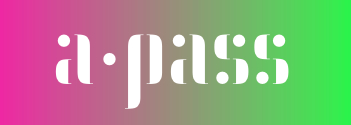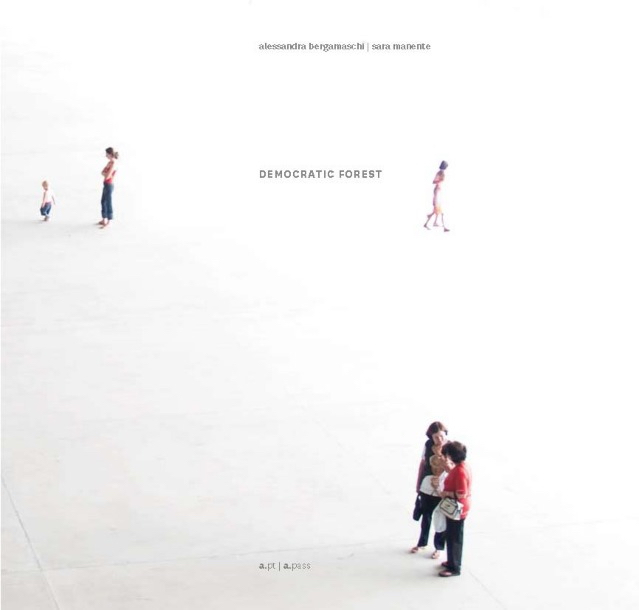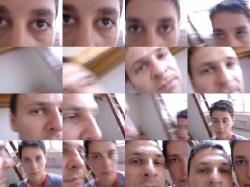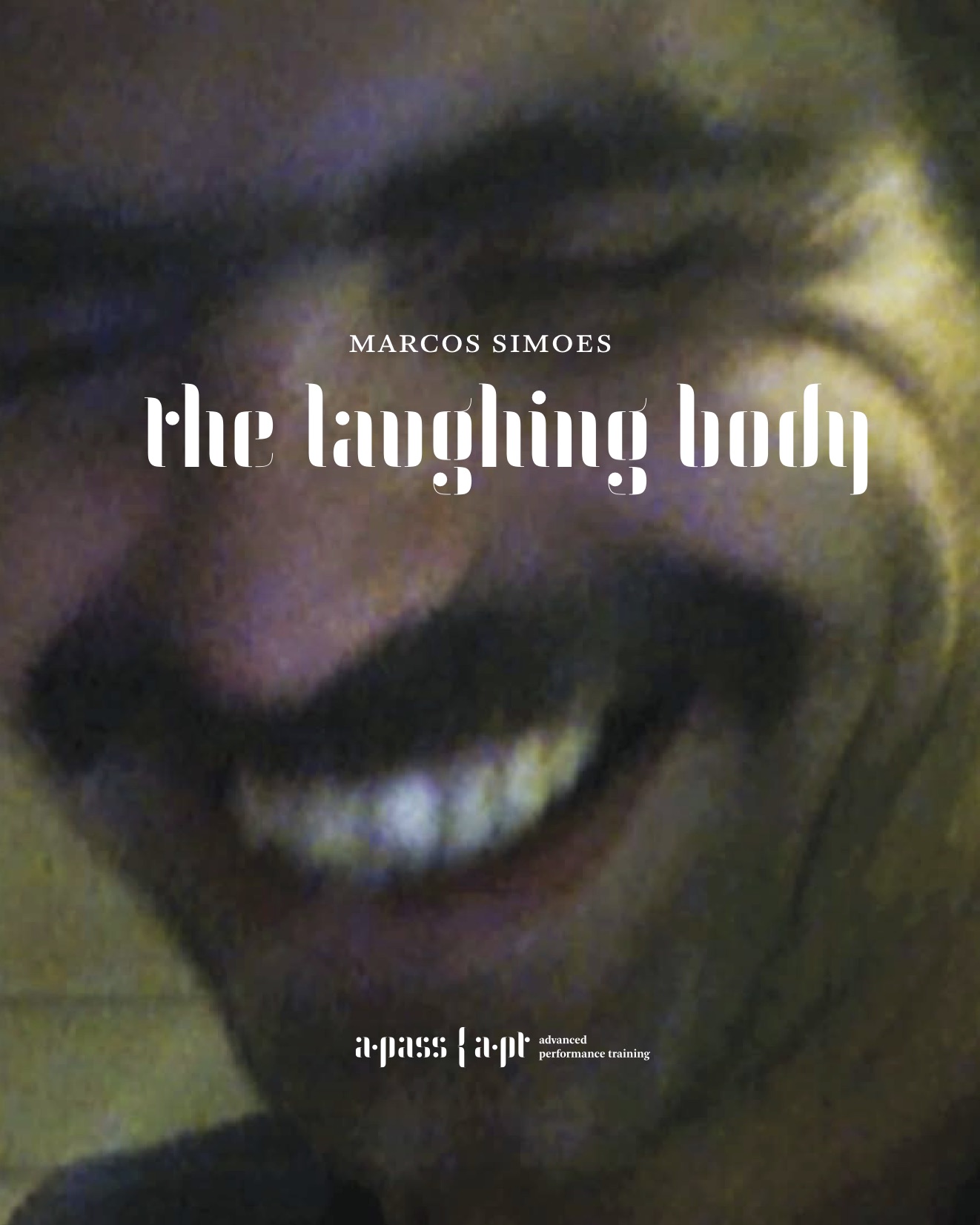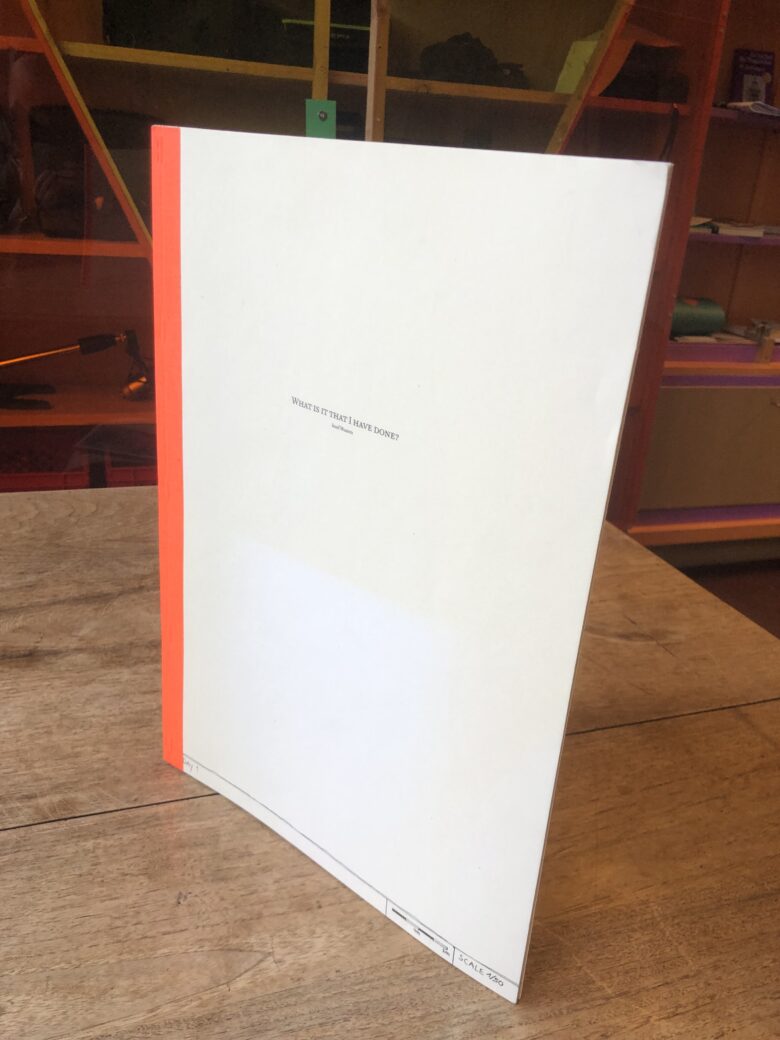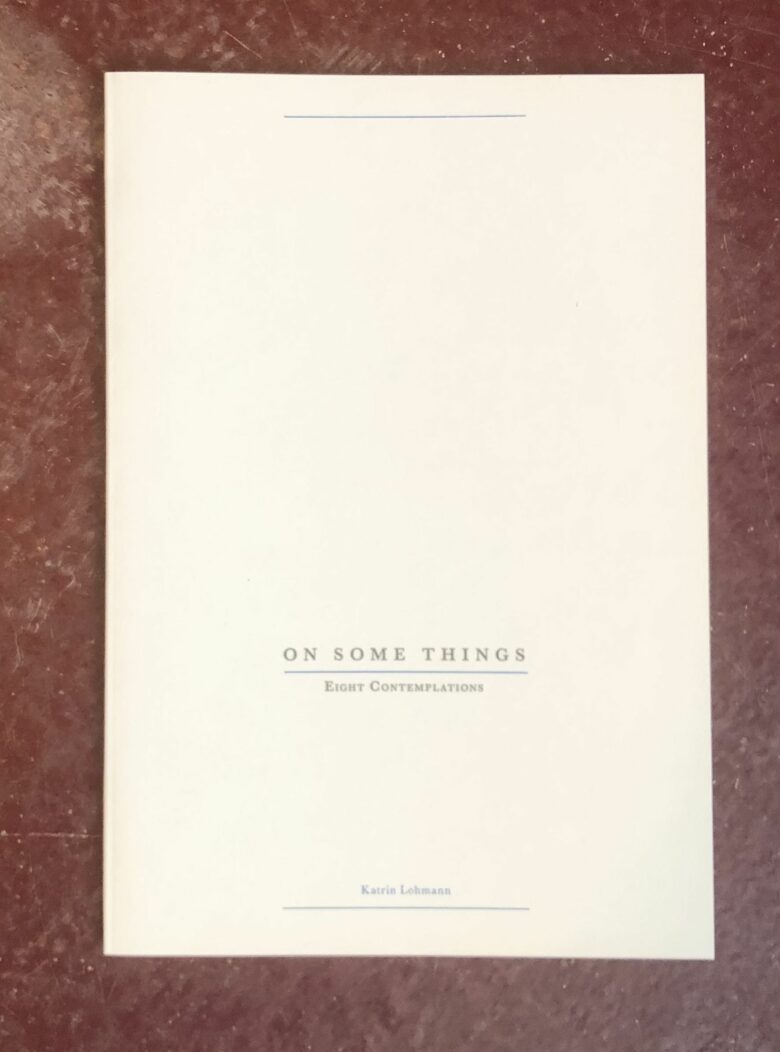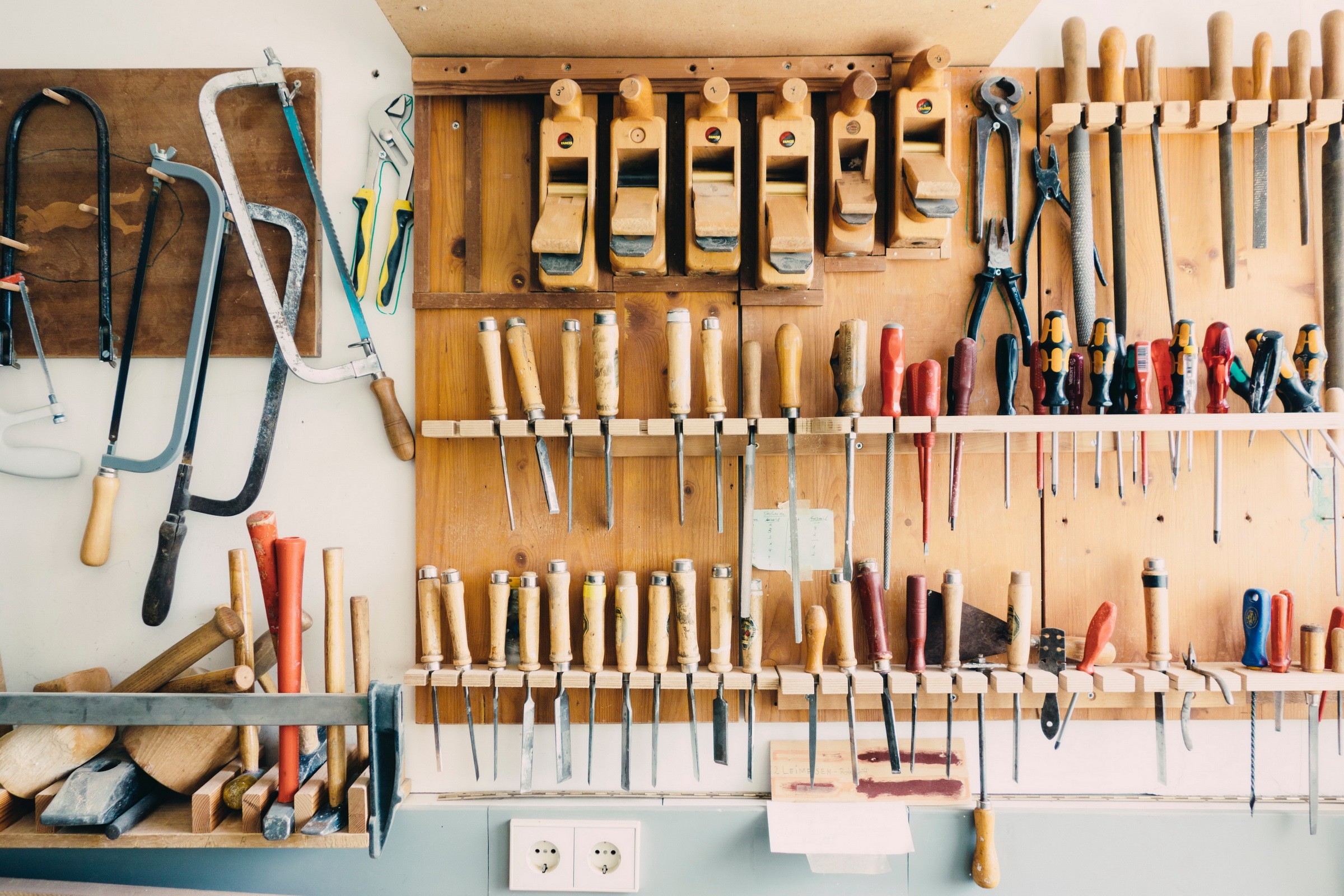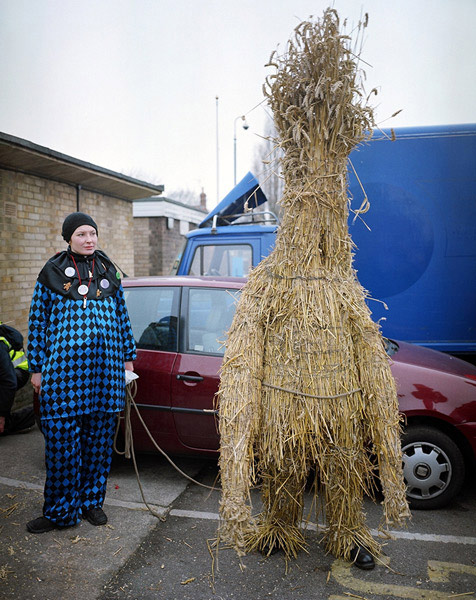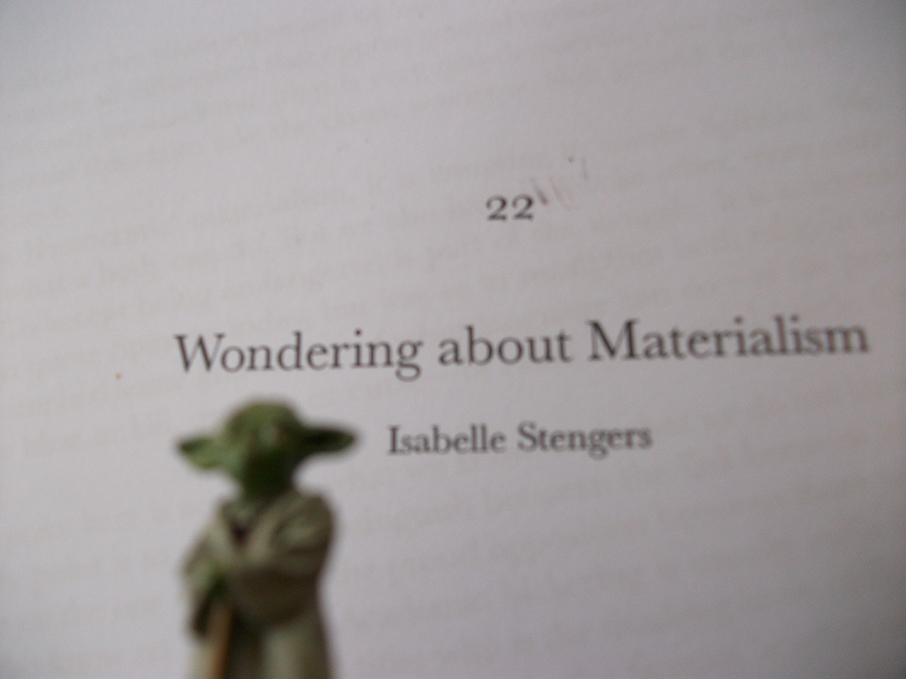postgraduate program, research center
2011 BLOCK III
1 September-30 November 2011
Researchers Participants in the Postgraduate Program
Aleksandra Janeva Imfeld
Carlotta Scioldo
Caroline Daish
Catherine (Clé) Lé
Doris Stelzer
Elise Goldstein
Leonie Kuipers
Margareth Kaserer
Marilyne Grimmer
Oshin Albrecht
Robin Amanda Creswell Faure
Simon Loeffler
Veridiana Zurita
Vicente Arlandis
Research End Presentations
Abhilash Ningappa
Philippe Severyns
Timothy Segers
Partners
RITS
Zsenne artlab
NU Performance Festival IV (Tallinn)
Contributors for workshops
Angelo Vermeulen
Antonio Araújo
Bart Verschaffel
Bojana Cvejic
David Bade
Elke Van Campenhout
Geert Opsomer
Guillermo Gómez-Peña
Jacob Wren
Juan Dominguez
Koen Van Singhel
Nicolas Galeazzi
Ong Keng Sen
Pierre Rubio
Robert Steijn
Silke Bake-Peter Stamer
Stef Stessels
Terenja Van Dijk
Wesley Meuris
Coordinators a.pass
Elke van Campenhout
Bart Van den Eynde
Mentors
Anette Baldauf
Pierre Rubio
Vincent Dunoyer
Vladimir Miller
15 – 17 / 09 / 2011
‘DON’T KNOW!’
Conference on Artistic Research
Don’t Know! is not a gathering with the sole aim of exchanging knowledge on artistic research practices. In the course of three days we rather aim to create a frame in which research is put into practice and shared with the audience. In other words: we propose a conference which provides different working situations, allowing an in-depth experience of research formats, relations and situations, and the specific ‘knowledges’ these produce. Following the suggested attitude in our conference-title – Don’t Know! – we would like to frame these formats through four fields of questions:
Don’t Know! the politics of knowledge production
In which way the artistic understanding of knowledge differs from the one in other fields? What are the political implications of such a difference (if any at all)? How could we redistribute the power of knowledge production throughout the arts? And finally: is this at all a valid question? Should the arts avoid the political recuperation of its terrain and abstain from the tight link to knowledge production practices? Or: is it possible to maintain an alternative position for the arts in their way of dealing with knowledge (production)? Or if not, can the arts still claim their (political) capacity for change?
Don’t Know! knowing today
Within a society that has turned the commodification of knowledge into one of its main economic drives, the critical discourse on these production formats the arts create has been the basis for a lot of (historical) research practices. Therefore we would like to ask ourselves how artistic practices today can be a viable motor for thinking about our economic, technical and political realities. How can the arts reflect upon, but maybe even more, how can they influence future developments?
Don’t Know! from knowledge production to knowledge processing
We might argue that art (and artistic research) does not in the first instance produce knowledge, but that the arts keep on opening up the cracks in our systems of understanding: mislaying the knowledge, escaping the gridlocked pre-defined contexts that can be understood only according to the conventions of the discourses (be they political, aesthetical, psychological, …) that define knowledge. Would it then not seem more appropriate to talk about ‘knowledge processing’ than about the production of knowledge? Art as a game of misplacing information rather than one that tries to reinforce meaning on the world? And does this in a lot of ways not echo a contemporary understanding of research in general?
Don’t Know! the environment
Artistic research – and specific modes of dealing with knowledge (production) – is nowadays placed before the challenge that it has to operate within certain disciplinary frameworks and protocols. The actual combat in the arts now is to see where the disciplining and institutionalisation of its intrinsic researching gesture can be turned productive again.The question is: what kind of environments and institutions does art need today in order to react on the changing ontologies of knowledge and to develop different approaches of working and thinking?
19 – 23 / 09 / 2011
SUMMERSCHOOL
series of two workshops in collaboration with RITS
How to Stage Discussions about Arts and Politics?
workshop by Jacob Wren
Jacob’s workshop is based on the technique of the relay-interview, a simple game for having unexpected conversations. It involves asking and answering spontaneous questions that are loosely based around several themes chosen before the game starts. It is an attempt to have genuine, surprising exchanges within a performance situation. And to find out what we think about it and what we most want to know.
How to Artistically Intervene in the Urban Space of the City of Ghent?
workshop by Antonio Araújo
The idea of Antonio’s workshop is to experience different points of departure in working with site and urban interventions. While working in a collaborative way in the city of Ghent, we will experiment the power of mobilization that theatre provides. Through intervening in the urban space, theatre recovers its public art dimension – which has always been there, but was sometimes blurry or forgotten.
26 – 30 / 09 / 2011
‘DON’T KNOW’
Workshop / Congress on Artistic Research by Nicolas y Galeazzi
Nicolas Y Galeazzi focuses on developing and questioning social discourses through artistic research, which is materialised in concepts, installations, performances as well as printed matter. Galeazzi sets up performative research frameworks for experiments with political and social conditions and is working thereby on a concept of ‘Mise-en-Discourses’.
Nicolas will work further on the principles that have been developed during the conference more thoroughly with the researchers/participants of the post-graduate program. Central are the 4 questions that have been guiding the preparation of the conference.
03 – 07 / 10 / 2011
‘DIRECTING THE GAZE’
Reading sessions on Architecture with Koen Van Singhel, Terenja Van Dijk, Wesley Meuris and Bart Verschaffel.
The development in the 16th century of the controlled space of the theatre isolated within the urban context made it possible to manipulate the gaze in an absolute way. The development of the theatre building reflects societal organization in a crystallized form where watching and being watched is organized following strict rules. In the second half of 20th century the theatre is brought back as a reference in the critical reflection on and discussion of the visual organization of the public space.
In these reading sessions we invite architects, theorists and artists who work and reflect on the gaze in architecture. Texts (or other influences) that have been essential in their development as an artist or theoretician are the starting point of a discussion on the organization of the gaze in an architectural context.
10 – 12 / 10 / 2011 & 17 -23 /10 / 2011
‘ARTIFICIAL REALITIES’
(episode 2 – Magical Materialism)
workshop by Pierre Rubio
This workshop is the last iteration of a series of two. They both seek to detach our research projects from an essentialist and naturalistic approach. Their common aim is at (re)problematising for (re)capturing the strategies of construction and thus the theories of knowledge which our singular researches investigate and produce. If the Spring workshop’s keyword was ‘attachments’, the second step will be entirely contaminated by the notion of ‘magic’. We will take a trip into the wonderland of in-differentiation between human and natural, object and subject, figure and background, and more important, theory and practice.
At first, during three days, we will re-consider our research projects under the influence of two singular analysis of magic : respectively Gilbert Simondon’s and Isabelle Stengers’.
During a second period of an entire week, we will turn a former shop (turned recently into an art gallery) into an alchemy laboratory to transmute our projects into something other. The basic idea is that if one takes distance from one’s own project by moving it into unexpected contexts, this allows the discovery of ‘attachments’ and “othernesses” to enrich the ‘original’ project. Taking seriously what practice means and is capable of, let’s engage in a risky path from familiar individuals to unfamiliar singularities, from experiments to experiences, from “matter of facts to matter of concerns”.
24 – 28 / 10 / 2011
‘PHOTOGRAPHY * LIGHT * SCENOGRAPHY’
workshop by Stef Stessels
Stef Stessels always has used the camera as a tool to create his personal database and archive. Recently he has begun to integrate his interest of photography directly into his scenographic work and light design. First of all he started to document the performances of de Roovers- and his sets – and the company uses his photos for its communication. More fundamentally his camera became an instrument in his research for light & set design where he integrated the photos from this research process in the actual performances. In this artistic workshop he will investigate with the participants the possible relations between photography, scenography and lightdesign integrating more technical aspects in concrete artistic exercises.
31 / 10 – 02 / 11 / 2011
‘OBJECTNESS & THINGLINESS’
reading sessions workshop by Elke Van Campenhout
Picking up on the many forms in which objects have appeared in the participant’s projects in the last months, we take a quick tour down memory lane, presenting different theories on the object in a 3-day crash course for beginners: Kant, Michael Fried, Paul Gillroy, Jane Bennett etc. We work around the ‘resisting object’ and ‘thingliness’ as political qualities of the object, around the object/subject dichotomy as driving force in (late)modernism, about objects charged by desire that turn violent, etc. This workshop mainly circles around close reading of texts.
03 – 13 / 11 / 2011
‘ON HOSPITALITY AND ESTRANGEMENT’
( The Tallin Project / The Viru Hotel )
workshop by Ong Keng Sen and Elke Van Campenhout
This workshop is part of a festival organized in a gigantic old Russian hotel in Tallinn. During ten days we will be working on two levels:
Together with curator and theatre maker Ong Keng Sen we work around ‘the stranger’: the one that doesn’t belong, the one that disturbs the ‘common space’, the one that by his presence changes the perception of the space etc. Both on a theoretical and a practical level, we will interfere in the hotel life, working around hospitality (Derrida), extimacy / intimacy (Zizek), invisible theatre, etc.
On a second level, you are invited to come with a project of your own, placed in one of the hotel rooms, and work further on these themes out of your personal interest. There is also the possibility to work in the corridors (as a scenographic concept), elevators, … Ong Keng Sen will also mentor these projects.
The festival will open its doors at certain times for visitors.
14 – 18 / 11 / 2011
‘GHOSTS AND HOSTS’
workshop by Robert Steijn
In this workshop Robert Steijn will work with the participants on principles like presence and absence, ghosts, energetic transformations, schizophrenic bodies belonging to different times and spaces at the same time.
Robert Steijn worked as a dance critic for seven years, and then also as a curator for dance and experimental theatre in Amsterdam for seven years. Now he tries to bring the magic back in life and in the theatre. In that sense he considers himself more and more a magician. His helper is a deer, who appears in a lot of his texts and dances. His belief is that everyone can become a homemade contemporary shaman. His path towards becoming such a magician has been described in his three solo’s: the first solo was his call in guiding the death of his father, the second one, his ego death in the loss of everything by the breaking of the heart and now in his third solo: the birth of a person who can cross the thin line between reality and imagination, between life and death.
21 – 25 / 11 / 2011
‘WINTERSCHOOL’
(Baroque bodies)
series of three workshops in collaboration with RITS
Can we understand our times of postmodern confusion as a genuinely baroque period? How does this idea of baroque challenge pre-conceived notions such as corporality, performance and (post-)colonial hybridization? How would a baroque body look like and what is its performative potential? Are we approaching a true baroque era of crisis as the distinctions between man and machine, between human and non-human life are slowly dissolving and man is entering a new phase in the history of colonization, conquering space?
The RITS Winter School consists of two periods. In November 2011 the Brussels-based arts centre Beursschouwburg will host three workshops for artists, activists, art students and academics. During a second period, in January 2012, you will get the opportunity to develop your own artistic response to your experience in one of the three workshops in Brussels. This individual research phase will be hosted by De Brakke Grond in Amsterdam. You will collaborate with other artists and with students from different art schools and you will be coached by different teachers from the participating art schools. The results of this workshop will be included in the program on a festival on baroque theatricality (February 1-3, De Brakke Grond)
Workshop 1: Guillermo Gómez-Peña (USA/Mexico)
This workshop aims at creating a temporary community of rebel artists from different disciplines, ages, ethnic backgrounds, gender persuasions, and nationalities, in which difference and experimentation are not only accepted but encouraged. Participants are given the opportunity to develop new modes of relationships between artists and communities, mentor and apprentice, which are neither colonial nor condescending and to discover new ways of relating to their own bodies. By decolonizing and then re-politicizing bodies, they can become sites for activism and embodied theory, for memory and reinvention, for pleasure and penance. Why do we do what we do? Which borders do we wish to cross and why? What is the relationship between performance, activism, pedagogy and our everyday lives? What about the relationship between the physical body and the social body?
Workshop 2: Angelo Vermeulen (Belgium)
In Vermeulen’s workshop, entitled ‘BODYREACTOR – Human monstrification in outer space’, the participants will explore the notion of potential monstrification of the human body in outer space. This workshop reroutes the theme of the ‘space alien’ to man himself. How to work with an ongoing mutating and modifying body? How to physically deal with an unknown and ultimately body-transforming environment? How to relate to a space where biological evolution never took us in the first place? ‘REACTOR’ refers to the experimental, open format of the workshop, to the condition of man in outer space (living in a craft or vessel), and to the fact that the group is locked up in one single space for one week. It also refers to the concept of monstrification in a more ‘Gothic’ sense.
Workshop David Bade (Curaçao)
During this workshop, Bade and the participants will create a site-specific environment taking the shifting world of early modern baroque as a starting point. Instability, excess, changeability will function is key concepts. The workshop will also investigate different modes of collaboration. “More is more” seems to be the motto of David Bade.
